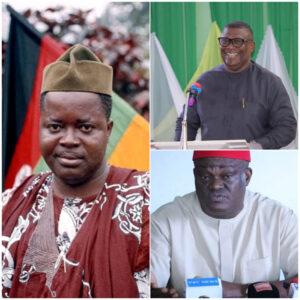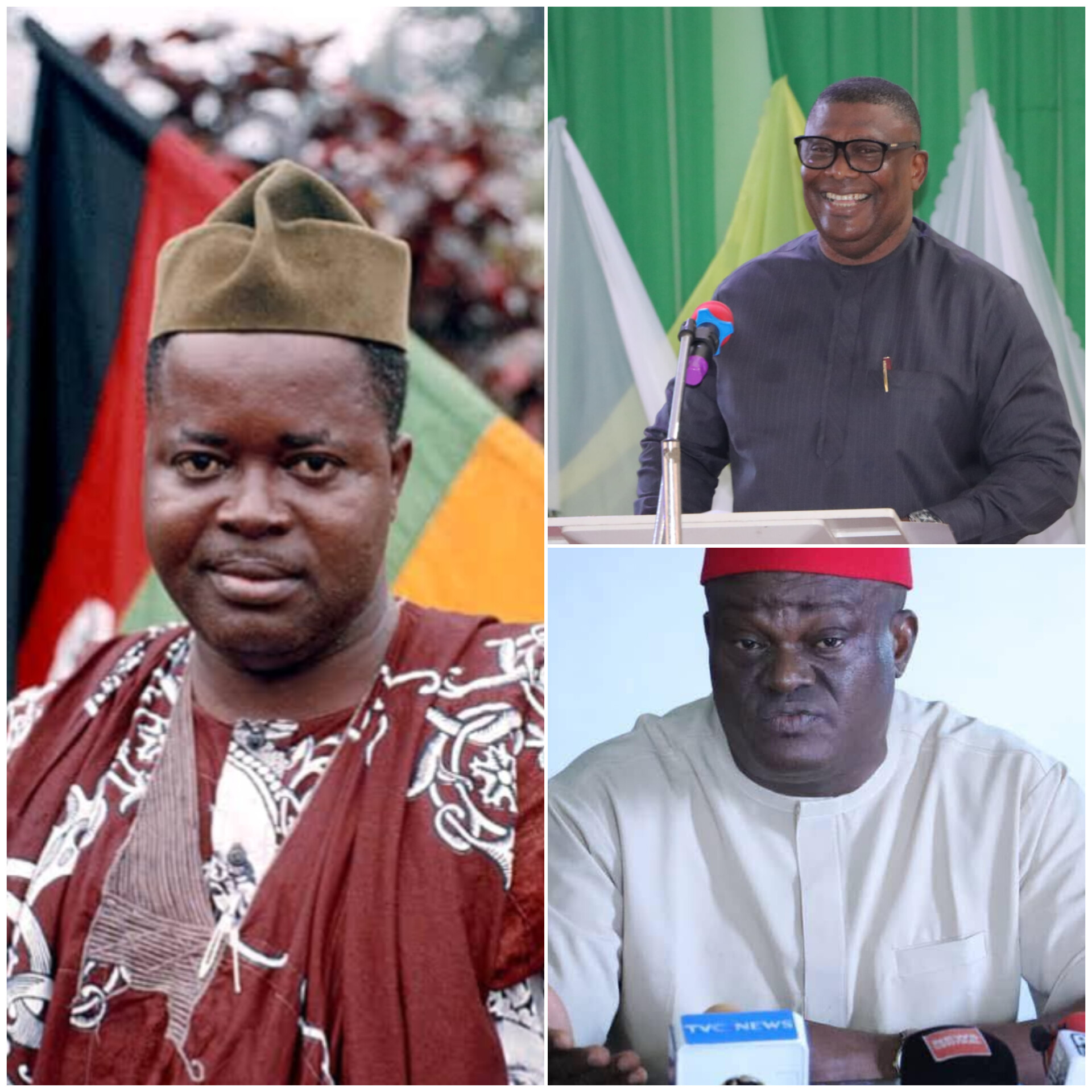
By Elder Abraham Amah
At the recently held second edition of the Michael Okpara Lecture at the Michael Okpara University of Agriculture, Umudike (MOUAU), the past and the present converged in a moment of profound symbolism and national introspection. What was billed as a commemorative lecture in honour of the late Premier of the defunct Eastern Region, Dr Michael Iheonukara Okpara, became something far deeper: the public unveiling of a modern-day embodiment of the late sage in the person of Senator Austin Akobundu.
It was not merely a lecture. It was a rekindling of history, vision, and legacy.
Ironically and powerfully symbolic, the event took place on the campus of a federal institution built on a land donated by Akobundu’s kinsmen several decades ago. That the scion of that very soil, Senator Akobundu—an indigene of Ikwuano-Umuahia—was chosen to preside over a lecture in honour of Dr Okpara is more than mere coincidence. It is a convergence of legacy and destiny. In that auditorium, on that sacred ground, the past spoke through the present, and a torch was visibly passed.
Dr M.I. Okpara was a phenomenon—an austere, visionary leader whose agrarian and industrial revolution transformed Eastern Nigeria into the fastest-growing economy of its time. His policies and institutions outlived him, and his leadership ethos became a benchmark for generations. But for decades, the region and the nation yearned for another of his kind—someone who not only remembered the legacy but lived it.

In Senator Austin Akobundu, it has become unmistakably clear that the spirit of Dr Okpara is not just alive but also active. A retired colonel with a spotless record, a former Minister of Defence, and now a serving Senator representing Abia Central, Akobundu is a public servant who walks in discipline, dignity, and purpose. His address at the lecture was not the routine praise-singing of the fallen; it was the voice of a kindred soul. He spoke not as an outsider looking in but as an inheritor of the same ideals—simplicity in living, strength in service, and vision in leadership.
This revelation is not only powerful—it is timely. The discovery of this symbolic continuity is significant in a nation desperate for transformational leaders. At a time when cynicism rules the public square and trust in leadership is waning, the re-emergence of a figure like Akobundu offers hope not just to the former Eastern Region but also to Nigeria as a whole. Indeed, the man many watched that day was not merely a Senator, he was a mirror of what is possible when public service is driven by legacy, not lust; by substance, not self-interest.

The Distinguished Senator made clear his commitment to supporting MOUAU, to revitalizing the Southeast through institutions like the South-East Development Commission, and to ensuring that agriculture—Dr Okpara’s chosen tool for empowerment—returns to the frontburner of national development. In doing so, he didn’t just echo the past; he projected the future.
Let it be said that on that day, on the grounds donated by his forebears, Senator Austin Akobundu did not just honour Dr Michael Okpara—he reawakened him. In doing so, he positioned himself not just as a political leader but as a torchbearer of a historic mission that transcends tribe, region, and even time.
Much is to be expected of him—not only by the people of Abia Central, not only by the Southeast or the shadow of the former Eastern Region, but by Nigeria and the African continent. For when true leaders rise, they do not rise for one people alone—they rise for all.
The labour of our heroes past shall truly not be in vain. In Akobundu, the vision of Okpara walks again.





